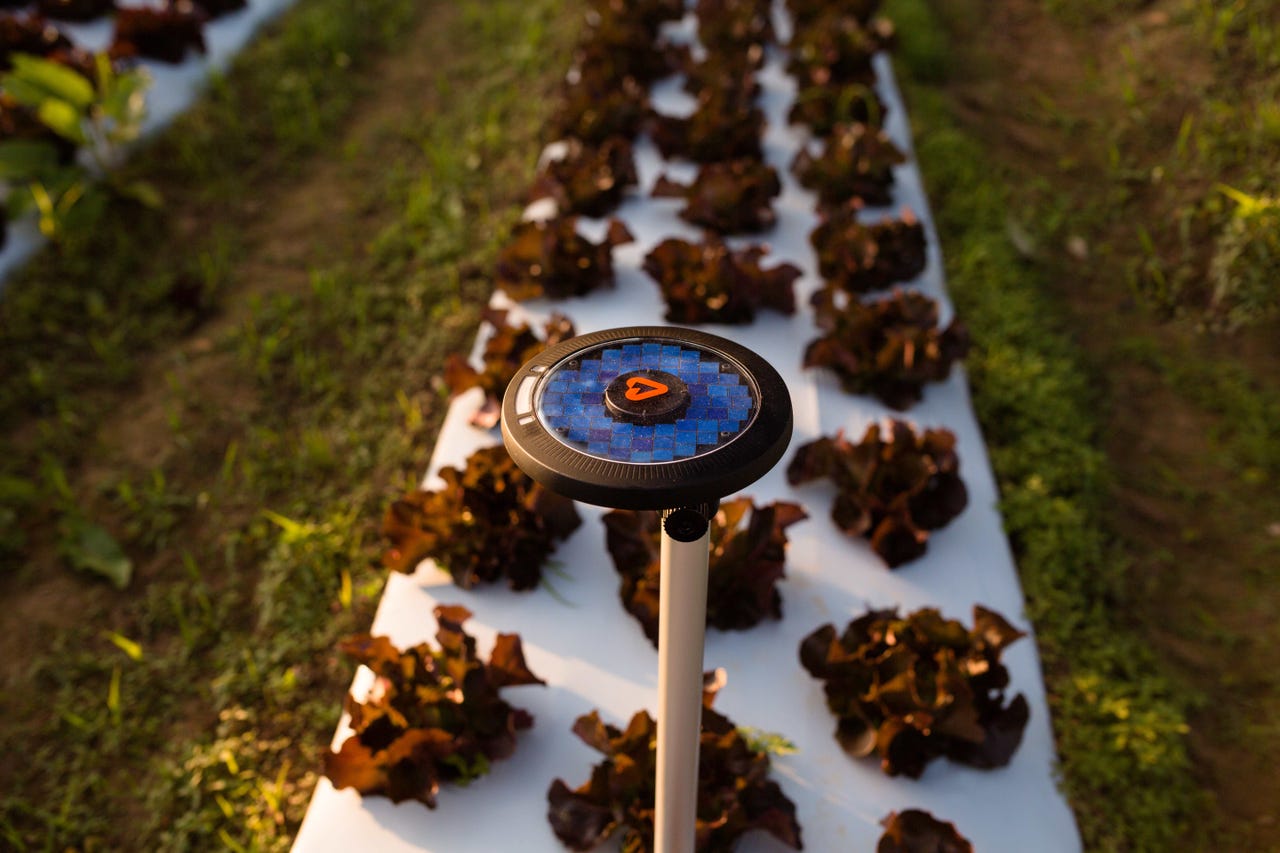Agtech startup Arable raises $4.25m to mass produce IoT and communication tools


Arable Mark
Arable announced that it has locked down $4.25 million in a Series A round led by Middleland Capital and S2G Ventures, bringing its total investment to $5.75 million. Chase Field, SparkLabs, and Cantos VC also participated in the startup's latest funding round.
The New Jersey-headquartered agtech startup -- founded in 2014 by Ben Siegfried and Kelly Caylor -- has also unveiled its crop and weather monitoring IoT device, Arable Mark, which measures over 40 individual environmental data streams including the drop size and intensity of rain based on the sound of each drop hitting against it.
Latest Australian news
"By collecting the weather [data], we are able to develop field-level weather forecasts that make use of large scale weather models that have been corrected for local microclimate. Because so much of crop growth depends on temperature, light, rain, and these core drivers are very patchy, we are able to bring the large forecasts down to scale," Arable CEO Adam Wolf told ZDNet.
The Mark device was designed in partnership with product designer Fred Bould, known for his involvement in the design of the Nest, GoPro, Eero, Google Robotics, and Roku.
The launch of Mark also coincides with Arable's new insights platform, which enables agribusinesses to benchmark crop performance and seasonal progress across hundreds of fields, while also being able to understand the details of growth or weather events. The data synthesis of weather and crop growth enables Arable to predict timing, quality, perishability, and yield.
"Timing is important, because selling some products just a week earlier than the rest of the market will make nearly all the profits for the year on that farm. But also being able to send labor and machinery to the field within the right 24-hour period is critical to having a successful harvest," Wolf said. "Yield is important because people are making forward contracts, and if they get the forecast wrong, then they either short the buyer -- sometimes having to buy from a competitor to fill the order -- or end up with too much product that they need to find a buyer in a hurry. "
"Quality is important because the processors we work with have their brand name on the package, and they want to be known for the quality of their product than in the raw volume they produce. That's what makes specialty crops different than commodity crops.
"Perishability is important, because it affects the net price of the product, and also factors into the effective cost of shipping . . . if half the product you ship goes bad, then it's better to save the time, money, and effort by not shipping it in the first place."
Arable dashboard
Arable has been running pilot programs in North America and the UK over the last year in partnership with the government, universities, NGOs, and commercial companies. It plans to fill orders in other European countries, as well as New Zealand, South Africa, and Australia where public and private sectors are working to advance the agriculture industry.
"Our initial product is an entry-level product priced to be appropriate everywhere from Napa Valley to Nebraska, to rural Africa, where it can be used to back weather-based insurance. Our forecast product is in the R&D stage, supported by the National Science Foundation, and we anticipate a success-based pricing model -- we get paid based on our forecast skill," Wolf said.
The startup claims it is currently generating around $50,000 worth of orders a week.
"We'll quickly be sold out of our initial run of 600 units, and we'll be making about 1,400 later this summer to continue filling the backlog of demand," Wolf said.
He added that the Series A funding will support the mass production of Arable Mark as well as the development of accessories such as an imaging module and more communications tools to enable satellite and LoRa telemetry.
Moving forward, Arable plans to expand its team of data scientists as well as increase data interoperability with a number of key integrations throughout the year such as Valley Irrigation's AgSense and Irrigation Exchange.